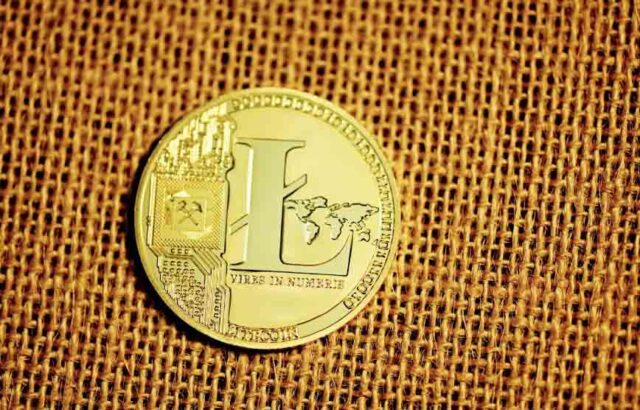There’s a lot of talk about inflation surrounding fiat money these days. But what about crypto inflation? Can digital currencies be a safe haven? Let’s find out!
Even in the most stable of times, inflation tends to be a major concern for investors and savers. After all, any rise in the general price level of goods and services effectively erodes the buying power of a currency. It can thus lower the real value of people’s wealth. Right now, we live in particularly uncertain and potentially unstable times, and the market tends to reflect that.
Is there such a thing as an inflation safe haven in crypto investments? A solution allowing savvy investors to ride out economic turmoil with their wealth and assets intact?
Cryptocurrencies have experienced an incredible boom in recent years, and have been very much propelled into the mainstream media conversation. For investors, they present an increasingly viable alternative to traditional assets like stocks, bonds, and real estate.
However, to assess whether crypto tokens can offer a safe haven against inflation, it is necessary first to see how inflation works. Then, we need to see how such factors may affect the value of crypto in addition to traditional economic assets.
Inflation and Its Causes

The most common cause of inflation is an increase in the money supply. Sometimes, it can also appear due to a drop in the supply of goods and services. When the supply of money grows, the value of the currency goes down, leading to inflation. Similarly, when the supply of goods and services decreases, the demand for them goes up, leading to higher prices. Geopolitical events that impact the global economy can also trigger higher rates of inflation.
Inflation has a deep impact on the economy and the people. It can lower the purchasing power of people’s savings, decrease economic growth, and also boost uncertainty in the market.
An inflation safe haven is what investors look for in such times. This term refers to an asset that is likely to retain its value or appreciate in the face of inflation. Usually, investors turn to assets such as gold, real estate, and commodities as inflation safe havens. These assets have a track record of keeping their value or appreciating during periods of inflation. However, in recent years, some investors have started to view cryptos as a potential inflation safe haven.
Cryptocurrencies: Characteristics and Advantages

Cryptocurrencies are digital assets that use cryptography. They use blockchain digital ledger technology to secure and verify transactions, and to control the creation of new units. Cryptocurrencies are decentralised, meaning that they are not controlled by any central authority, and they operate on a peer-to-peer network. Some of the most often-touted advantages of cryptocurrencies are:
- Decentralisation: Cryptocurrencies are not controlled by central banks or governments, making them resistant to censorship and manipulation.
- Transparency: Transactions on the blockchain are public and transparent, which ensures that there is no fraud or corruption.
- Security: Cryptocurrencies use advanced cryptography to secure transactions and protect the integrity of the blockchain.
- Low Fees: Transaction fees for cryptocurrencies are relatively low compared to traditional financial transactions.
Crypto as an Inflation Safe Haven
Investors often see crypto as an inflation hedge, but its ties to consumer prices are not always straightforward. Factors such as market forces, supply and demand, and speculation determine crypto tokens’ value. Therefore, the price of cryptocurrencies can fluctuate rapidly. Moreover, factors such as regulatory changes, news events, and market sentiment affect it.
Moreover, (most) cryptocurrencies are not backed by any tangible assets or government guarantee, making them highly volatile. In contrast, people have used traditional assets like gold, real estate, and bonds as a hedge against inflation for centuries. These assets serve as safe havens during times of economic uncertainty. Usually, they are backed by tangible assets or government guarantees.
However, cryptocurrencies do have some characteristics that make them a potential hedge against inflation. In fact, there is a whole set of tokens known as inflationary cryptocurrencies. They usually stay attractive to investors even when inflation rises.
Inflation-Proof Crypto Characteristics
Firstly, cryptocurrencies are decentralised, meaning that they are not controlled by any central authority (e.g. the Federal Reserve) or government. Therefore, they are not subject to the same inflationary pressures as traditional currencies backed by government guarantees.
Secondly, cryptocurrencies have a finite supply, which means that they cannot easily inflate like traditional currencies. For example, Bitcoin’s supply has a cap of 21 million units, and has a circulating supply of around 18 million units right now. This finite supply means that Bitcoin does not suffer from inflation to the same extent as traditional money does.
Moreover, cryptocurrencies can also serve as a hedge against currency depreciation. Inflation causes the value of a currency to drop. Thus, crypto assets can serve as an alternative store of value. For example, during the hyperinflation crisis in Venezuela, many people turned to crypto tokens like Bitcoin and Dash as a way to protect their savings.
Finally, cryptocurrencies can serve as a hedge against geopolitical uncertainty. Political instability, human conflict, and trade wars can lead to currency depreciation and inflation. Digital assets can serve as an alternative store of value during times of trouble.
A Note on the Importance of Security

Despite the above advantages, however, it is extremely important to note – crypto will absolutely not be a safe haven for your investments, should your savings become vulnerable to criminals or bad faith actors in the crypto market. This is one of the significant differences between the fiat bank intuitions and your crypto portfolio: crypto investors tend to have to fend for themselves a bit more when it comes to securing their assets.
However, that should not concern you too much. It just means you’ll need to do your due diligence and really put the time into setting up. For example, you will want to ensure you have a crypto wallet offering security and utility, while you should only be trading your tokens through trusted and dependable crypto platforms.
And, yes, choosing a dependable platform is certainly easier said than done. However, we live in the age of technological advances that provide a level of luxury and convenience that the people who got into crypto in the early days could only dream of.
One of the prime examples of said luxury and convenience are platforms like Bit-gpt.app/ which not only uses a unique AI system to automate and streamline the process of finding a popular and well-liked crypto broker but also provides the latest cutting-edge crypto tools needed to take a trading journey to the next level.
Challenges to Crypto as an Inflation Safe Haven
While there are certainly arguments in favour of cryptocurrencies as an inflation safe haven, there are also several challenges you need to keep in mind. One of the main challenges is the volatility of cryptocurrencies. While some investors view volatility as a positive, as it can create opportunities for significant gains, it also means that cryptocurrencies can experience significant losses. For example, Bitcoin experienced a major price correction in early 2018, losing over 80% of its value in just a few months.
Another challenge to cryptocurrencies as an inflation safe haven is their lack of widespread adoption. While Bitcoin and other cryptocurrencies have gained significant attention in recent years, they are still relatively new and not widely accepted as a means of payment. This means that their value is largely driven by speculation rather than actual use cases. Until cryptocurrencies become more widely adopted, viewing them as a true inflation safe haven may be difficult.
Regulatory risks are another challenge to consider. While cryptocurrencies are decentralised and not subject to government control, they are still subject to regulation. In recent years, many governments around the world have been working hard to bring cryptocurrencies under some kind of legislative control, and the degree to which they are able to do this is ultimately going to have significant effects on the future of cryptocurrency investment.
The Verdict: Crypto as a Safe Haven
So, can crypto be an inflation safe haven? As you can see, there are so many evolving factors in this conversation that it is virtually impossible for anyone to give that question a simple “Yes” or “No” answer.
Crypto is not immune to market pressures and global economic crises, something we have clearly seen play out in just the last few years. And while crypto is currently (and by design) decentralised and thus immune to authority manipulation or control, the conversations around crypto regulation that are taking place in numerous countries right now mean that we cannot definitively say for sure if they will remain that way.
However, there are also some very exciting developments happening in the crypto space right now, particularly in the fields of Web3, AI, NFTs, and virtual metaverse projects. Creative innovation, and incorporation into new fields and technologies, is one of the factors that drive the most growth in crypto values. For this reason, many believe that crypto value in the coming years (and especially decades) has the potential to match or exceed the rate of economic inflation, which would therefore make it an excellent safe haven for your wealth.
Ultimately though, there are no guarantees. Crypto is not a risk-free investment. However, savvy investors will likely diversify their crypto portfolios to avoid putting too much value into any one token. There are also some good options for the risk-averse such as investing in stablecoins, whose value tracks various fiat currencies.
With a robust and diverse portfolio, crypto certainly has the potential for offering an inflation safe haven, though, in the end, each investor will ultimately need to assess the relative risks for his or her own self. The risks will always be there, although the potential reward could end up being significant.











